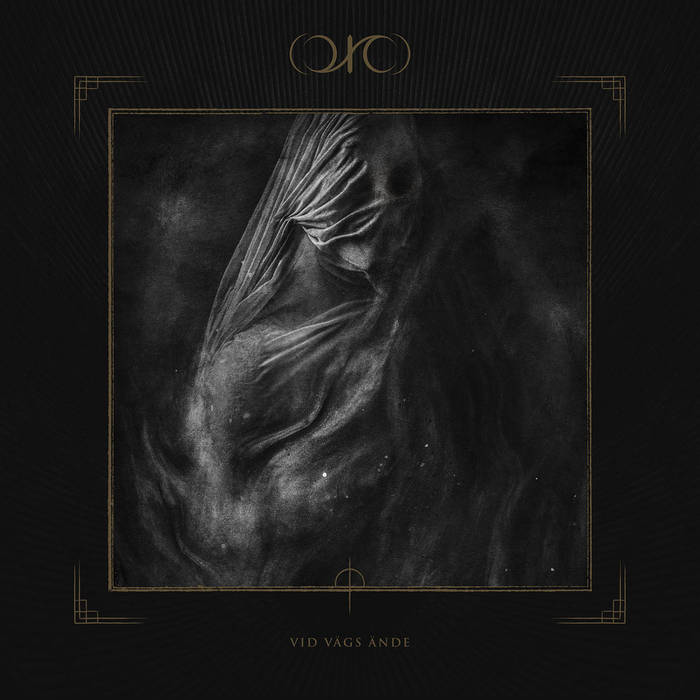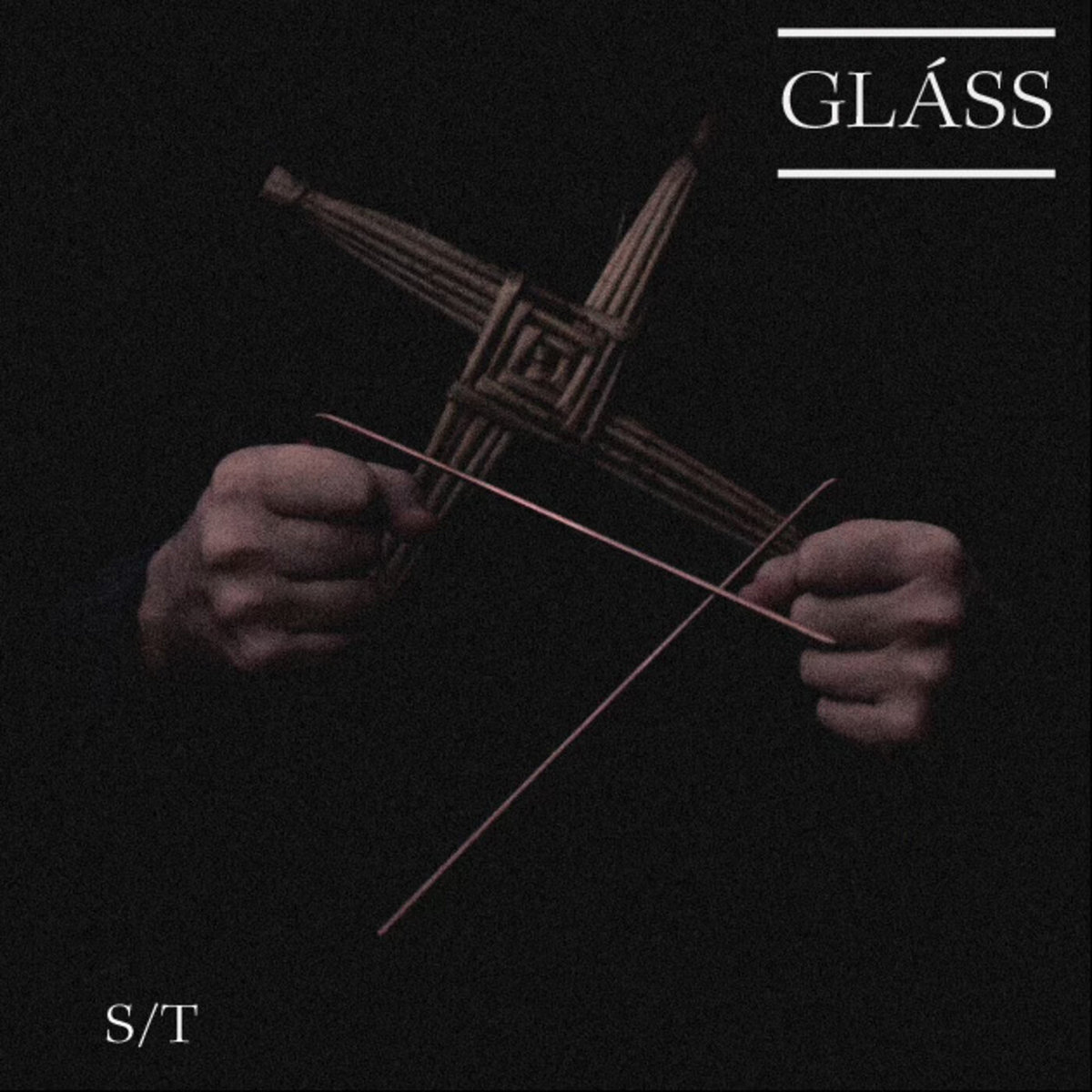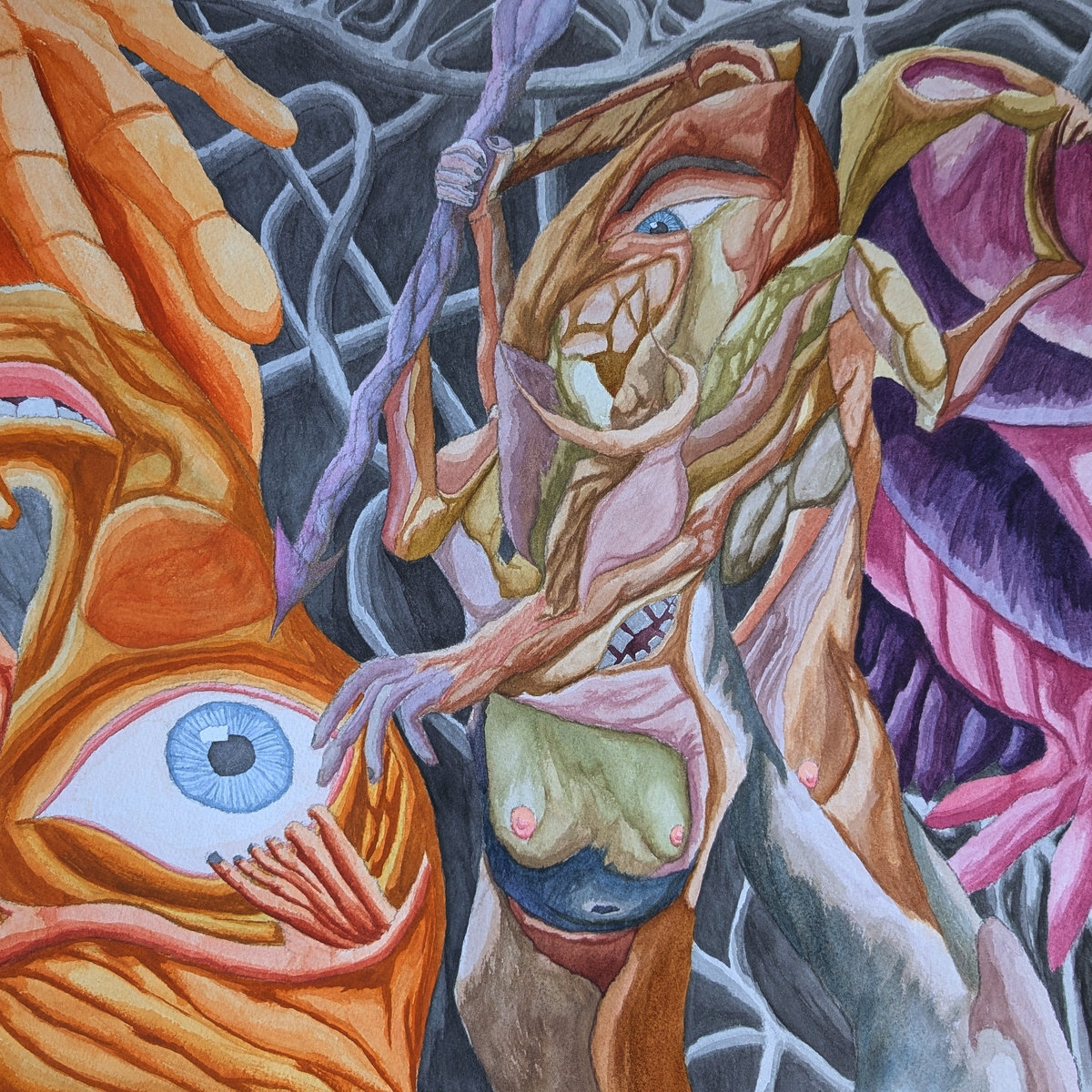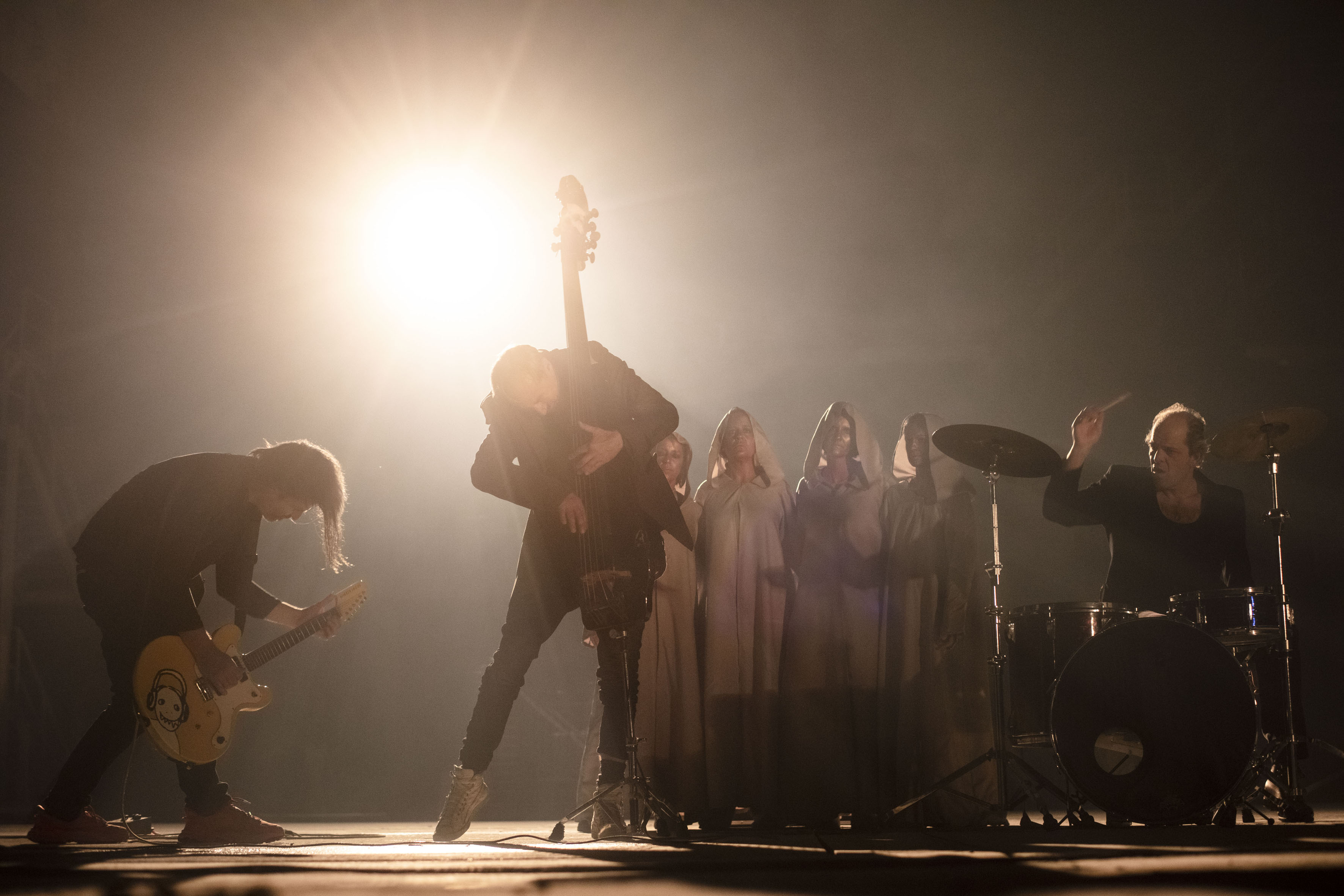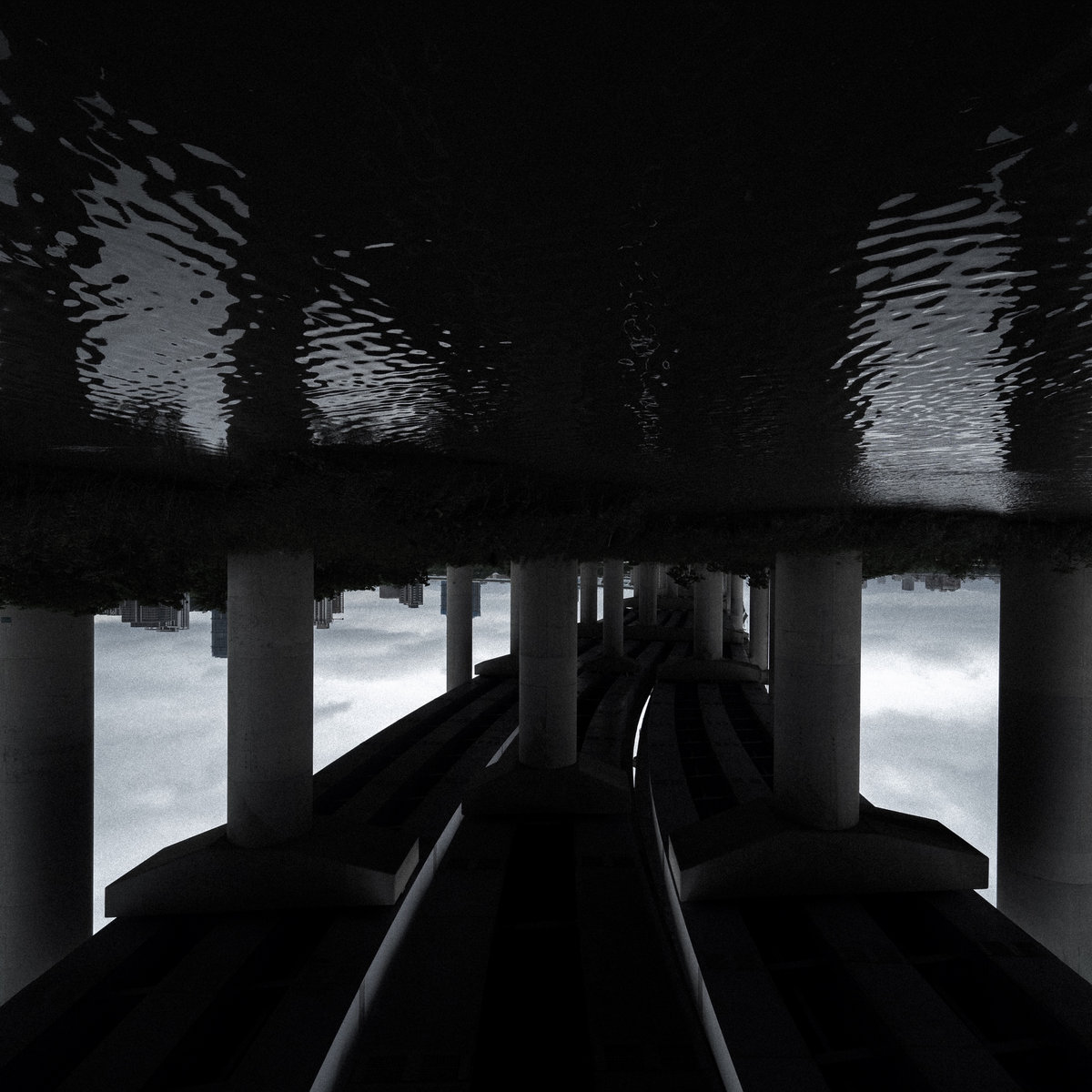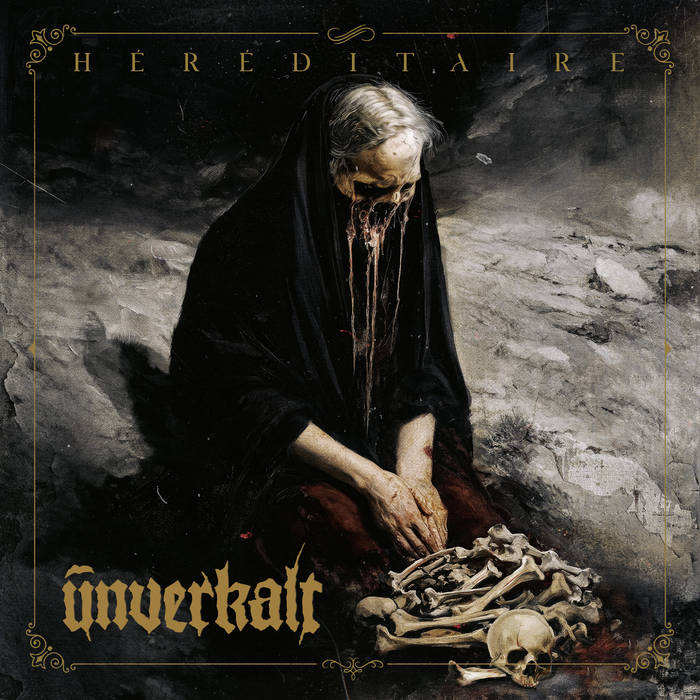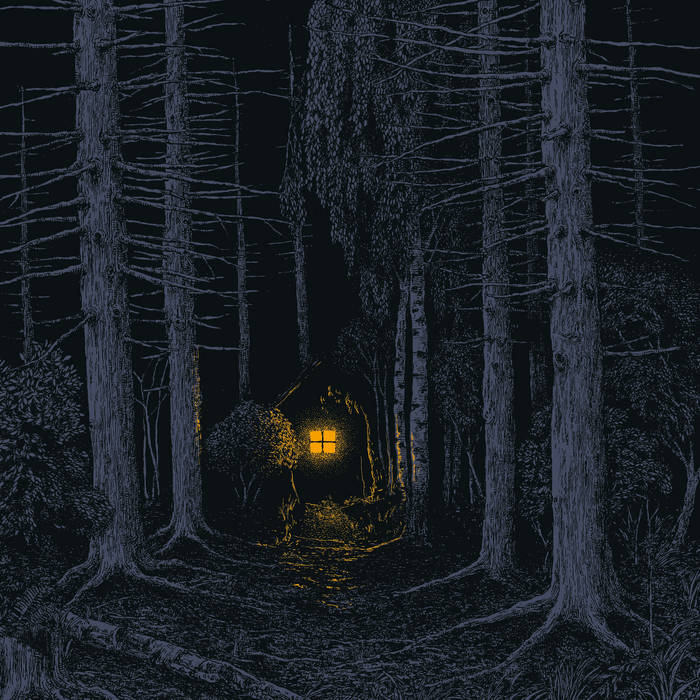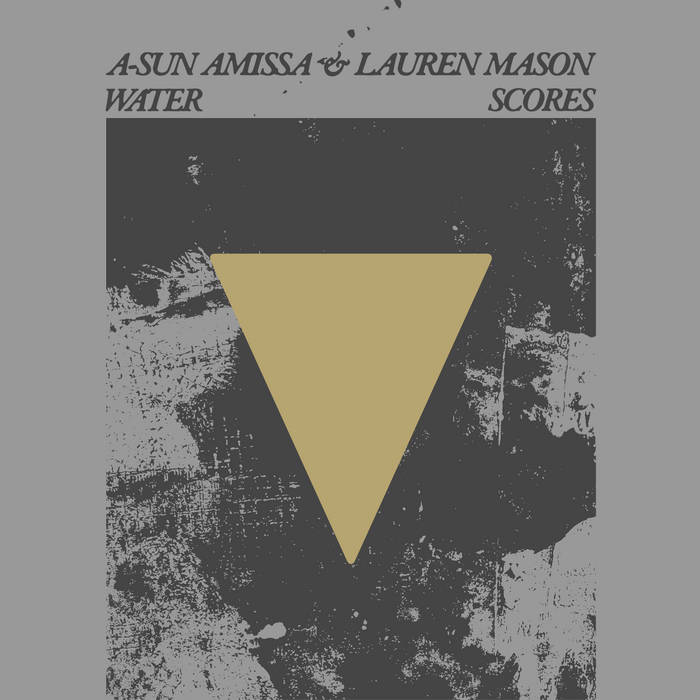Insane Magma-inspired French Avantgarde Prog Rock band PoiL meets Japanese vocalist and satsuma-biwa player Junko Ueda to tell epic stories from the 13th century in a breathtaking musical clash of eras and cultures.
If you’re feeling like you’ve read that paragraph – word for word – before, let me congratulate you! You’re obviously either an avid follower of VoS or an honestly a little bit disquieting stalker of me personally, because I have indeed written that sentence half a year ago, when we gave you our Mid-Term-Selections, a quick fix of album recommendation beyond what we had already reviewed in 2023.
And as if Dur et Doux wanted to give us a chance to redeem ourselves for missing the chance to properly write about one of the most original, most creative and craziest records of the year, here comes the continuation of PoiL and Ueda’s shared journey. Yoshitsune, named after the Japanese Medieval hero whose story the album retells, looks very similar to the self-titled debut of the collaboration. From the drawing style and colour scheme of the cover to the bilingual lyric sheet and liner notes explaining the story PoiL Ueda make it very clear that their objective hasn’t changed. While the songs and poems aren’t carbon copies at all, most general observations you can make about one album are also true for the other.
Especially since having been introduced to the band live at this year’s Roadburn Festival, where they played a spectacular show consisting of material from both releases, I personally don’t even want to seperate the two albums from each other. So despite coming out a little time-displaced, they are forming one continuous double album in my perception. That also includes the total suspense curve of both releases combined; the debut started much slower and took its time over several tracks to step by step introduce us to the full range of the band’s sound. On Yoshitsune on the other hand we’re thrown into the full-blown overwhelming action much sooner. In consequence this means that my recommendation for the best listening experience will always be to enjoy them back to back in sequence. It’s not mandatory though. Given that your’re reading this on a predominately Metal-themed site, the heavier, more aggressive undertone of Yoshitsune might possibly be more to your liking anyway.
But I must admit that even if you gave me an extensive rundown of your taste - and it didn’t include some key names like the aforementioned Magma, King Crimson (preferably albums with Tony Levin) or fellow French Avantgarde Metal extremists Ni, who share their bass player with PoiL - I would have a hard time to predict whether this is for you or not. Maybe you’re an obsessive Progressive Metal nerd, but this strays way too far off the rulebook you’re accsutomed to. Or you’re not big on Prog in general and what you associate with the term, but this will still blow your mind, excactly because it’s just so wildly out there, so unlike anything you’ve ever heard before. You can name a handful of artists crossing any kind of Western Rock with Far-Eastern traditional music? Respect! That’s not bad. But how about the specific lute sounds and vocals of traditional Japanese Satsuma-Biwa (Epic Story Telling of the Samurai) and Shomyo (Buddhist Chants) combined with overwhelmingly complex Prog, Math Rock and Zeuhl, which in itself is heavily influenced by Jazz and Classical Avantgarde? Yeah, thought so.
The craftmanship on display is completely over the top, but it never comes under suspicion of being pretentious. Even though the virtuosity sometimes indeed slaps you in the face until your cheeks are burning, this music wasn’t composed with the aim of screaming Look at our scales! The scales are amazing, no doubt, but they have purpose beyond themselves. They are important puzzle pieces of an adventurous, gripping, horizon-broadening, all around just extremely exciting work of entertainment.
First and foremost everything here revolves around story-telling. That becomes very obvious in a stripped back track like “Ataka 安宅”, where we hear Junko Ueda narrating on her own. The musical ideas and sparse instrumentation completely follow her tale. But back with the whole shebang of male choirs and shouts, pumping acoustic bass, shredding guitar, dramatic analogue synths and polyrhythmic drum madness - and the lute still being an equal, fully integrated part of this whirlwind -, you’ll find that nothing about this principle actually changes. All these elements are only tools of narrative expression within an extremly wide dynamic range. It accomplishes that even if the language barrier hinders you from understanding the exact words of this tale of flight, storms, ghosts, love and wit - you still feel all of its nuance and intensity.
There’s surely nothing wrong about listening to Yoshitsune on a surface level of just enjoying the compositional madness and being tossed around by its surprisingly furious intensity. That’s what I’m doing most of the time, and it’s already enough to recognize PoiL Ueda one of the most outstanding collaborations the music world has heard in recent years.
But beyond that this album and its predecessor also provide a rich abundance of layers to unveil and explore. If you want you can make this project your base camp and gateway to some of Rock’s craziest subgenres, to Japanese lore, culture and musical understanding - or musical understanding as a whole really. Who am I to say where it stops? This album definitely has the power and potential to change one’s musical trajectory for good.


